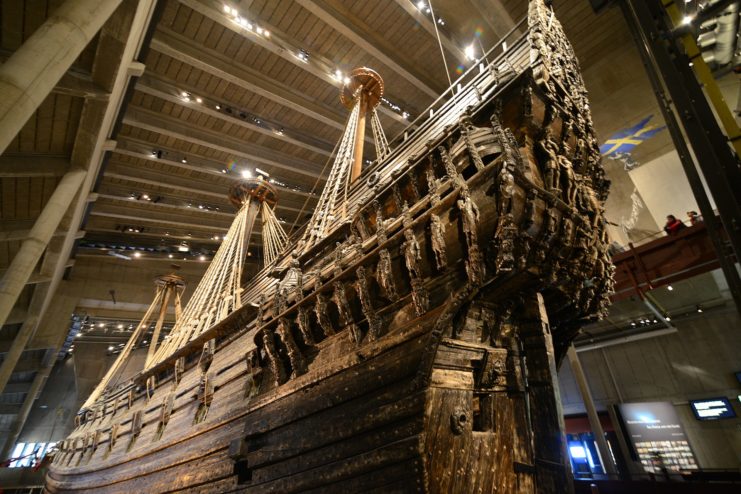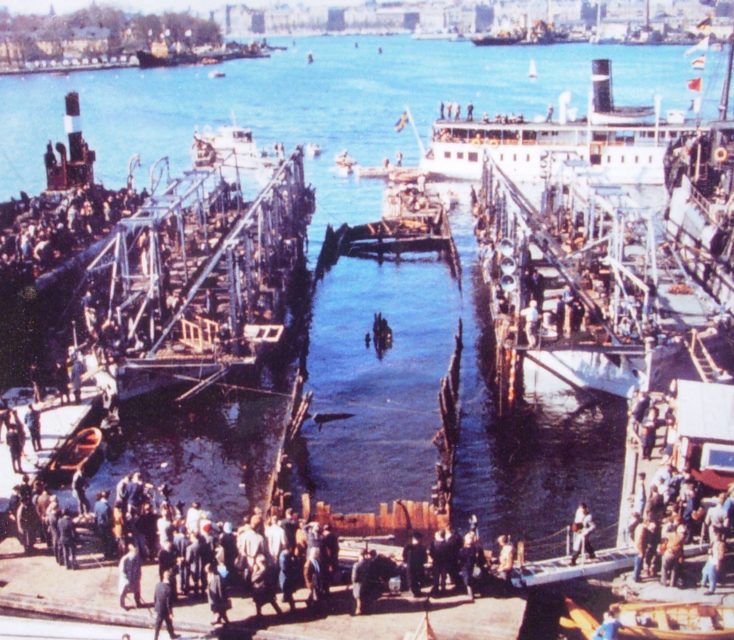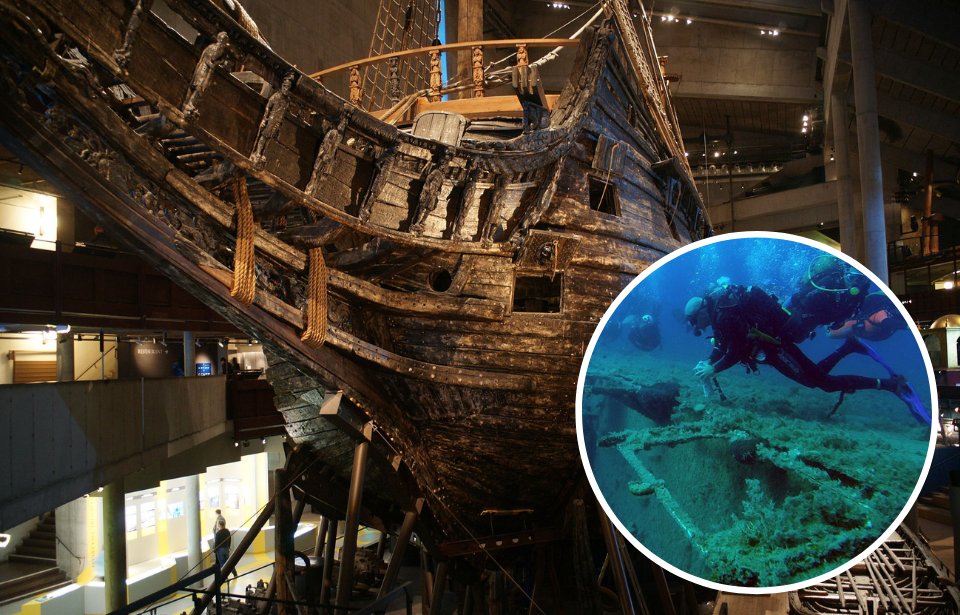The long-lost sister ship of the 17th-century warship Vasa has been discovered off the coast of Vaxholm, Sweden. According to the Swedish Museum of Wrecks, Äpplet was located through a joint effort by maritime archaeologists and the country’s Navy.

Äpplet was launched in 1629 and constructed by the same shipbuilder as Vasa, after King Gustav II Adolf ordered four new warships. The latter vessel was carrying 64 cannons when she embarked on her maiden voyage just outside Beckholmen on August 10, 1628. Intended to be an enduring symbol of Sweden’s military strength, Vasa sank just 1,300 meters into her maiden voyage.
Shipbuilder Henrick “Hein” Jacobsson had suspected Vasa was built too narrow and was, therefore, unstable. To rectify the issue, he ensured Äpplet featured a wider design and a slightly different hull shape. Vasa was salvaged centuries later, in 1961, and put on display at the Vasa Museum in Stockholm’s Royal National City Park.
Along with the slightly smaller warships Scepter and Kronan, Äpplet served in the Swedish Navy during the Thirty Years’ War. Despite participating in a number of naval battles during the conflict, she was later deemed unseaworthy and scuttled in 1659, serving as an underwater spike strip to catch enemy ships.
Swedish maritime archaeologists have discovered the long lost sister ship of the iconic 17th-century warship "Vasa", which sank on its maiden voyage, the Swedish Museum of Wrecks said on Monday ▶️ https://t.co/QJM2ueXHZU
📷 Archaeologists examine the "Vasa" on December 13, 2021 pic.twitter.com/IJmiACCr8b
— AFP News Agency (@AFP) October 24, 2022
The warship was discovered in December 2021, in a strait off the island of Vaxholm. A more thorough survey was conducted the following spring, which revealed details that were similar to those of Vasa. Archival data, measurements, technical details and wood samples later confirmed the wreck was that of Äpplet.
The warship sticks out approximately six-to-seven meters from the bottom of the seafloor. While parts have collapsed, her hull up to the lower gun deck is in relatively good condition. The parts that have fallen off show gun ports on two different levels.
Speaking in a press release about the discovery, Jim Hansson, a maritime archaeologist with the Swedish Museum of Wrecks, said, “Our pulses raced when we saw how similar the wreck was to Vasa.” In particular, he referenced Äpplet‘s dimensions and construction, and added that the discovery has allowed researchers and historians to study how Swedish shipbuilding developed over the centuries.

More from us: U-111: Wreck of Famed WWI-Era German U-boat Discovered Off the Coast of Virginia
In 2019, the Swedish Museum of Wrecks announced the discovery of two warships in the same area where Äpplet was located. While archaeologists initially believed one of the wrecks to be the warship, it was revealed in 2021 that they were actually the medium-sized vessels Maria and Apollo, which had been scuttled in 1677.
